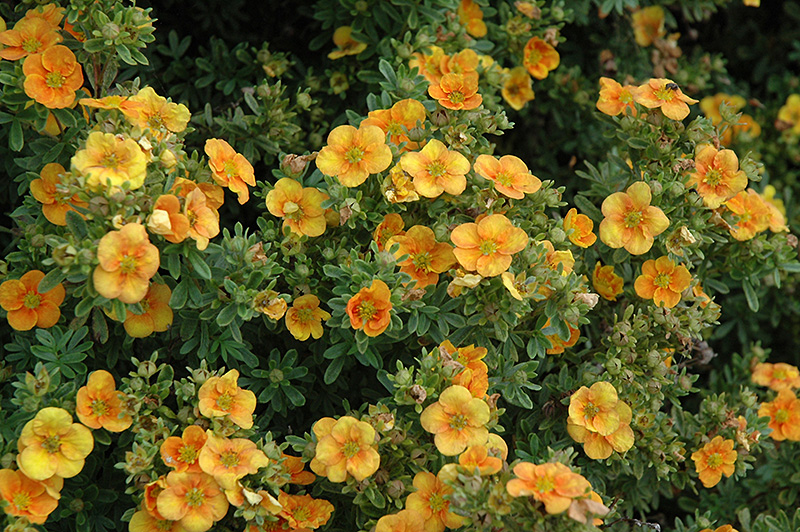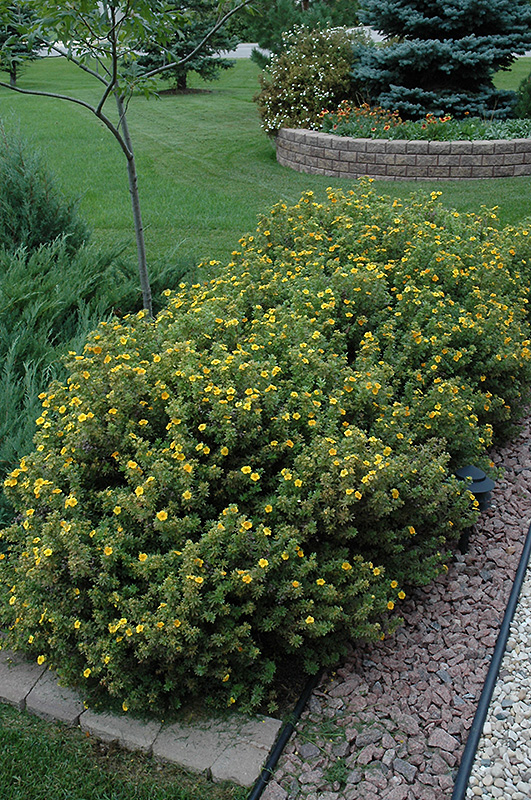Mango Tango Potentilla
Potentilla fruticosa 'Mango Tango'
Height: 3 feet
Spread: 4 feet
Sunlight:
![]()
![]()
Hardiness Zone: 3a
Other Names: Bush Cinquefoil, Shrubby Cinquefoil
Description:
A new variety that's extremely dense and compact with showy yellow flowers streaked with orange from July until frost and fine textured foliage; tough, hardy and adaptable, rarely requires pruning, excellent in mass plantings
Ornamental Features
Mango Tango Potentilla has yellow flowers with orange centers at the ends of the branches from late spring to early fall. It has light green deciduous foliage. The small ferny compound leaves do not develop any appreciable fall colour.
Landscape Attributes
Mango Tango Potentilla is a dense multi-stemmed deciduous shrub with a more or less rounded form. It lends an extremely fine and delicate texture to the landscape composition which can make it a great accent feature on this basis alone.
This is a relatively low maintenance shrub, and is best pruned in late winter once the threat of extreme cold has passed. It is a good choice for attracting butterflies to your yard, but is not particularly attractive to deer who tend to leave it alone in favor of tastier treats. It has no significant negative characteristics.
Mango Tango Potentilla is recommended for the following landscape applications;
- Mass Planting
- General Garden Use
Planting & Growing
Mango Tango Potentilla will grow to be about 3 feet tall at maturity, with a spread of 4 feet. It tends to fill out right to the ground and therefore doesn't necessarily require facer plants in front. It grows at a slow rate, and under ideal conditions can be expected to live for approximately 30 years.
This shrub does best in full sun to partial shade. It is very adaptable to both dry and moist locations, and should do just fine under average home landscape conditions. It is considered to be drought-tolerant, and thus makes an ideal choice for xeriscaping or the moisture-conserving landscape. It is not particular as to soil type or pH. It is highly tolerant of urban pollution and will even thrive in inner city environments. This is a selection of a native North American species.



